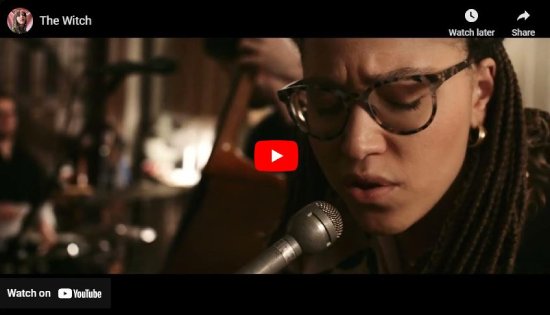In 2018, Kaia Kater released her sophomore album, Grenades. It effortlessly drew from the sounds of her Canadian, Caribbean, and Appalachian roots, garnering widespread praise, a JUNO nomination, and a spot on the Polaris Music Prize long list. Not long after its release, Kater planned its follow-up, which would further expand on her sound, merging folk and alt-soul. She released an interpretation of Frank Ocean’s “Swim Good,” and began experimenting with synths and Ableton. Production on the release was on its way when Kater ended the project.
“I felt a bit trapped by my identity as a banjo player,” she explains from her home in Toronto. “Just these feelings of, ‘I want to get away from my roots. I want to try something different. I want to be someone different.’ I needed a break from Kaia Kater’s music altogether. It sent me spinning in this direction of ‘I just need to stop.’”
Considering her grueling years of creating, performing, touring, and promoting, Kater says she was feeling like “a horse on a track,” desperate for change. An escape presented itself when she was accepted into the Slaight Music Residency at the Toronto Canadian Film Centre. Soon enough, she was immersing herself in music from an entirely fresh perspective.
“It was the perfect scenario for me to take the backseat completely,” she says. “As a composer, you come in at the end of a process, usually a very long and considered production process. You take direction from the director, and sometimes the producers. I was able to be of service to someone else’s musical vision. And that was such a relief. I could get inspired by someone else’s film and someone’s creative choices. And then I could celebrate them, the release, the art piece. For a couple of years, I barely wrote, and it was only through that process that I was able to come back to my own music.” Kater went on to win a 2023 Canadian Screen Award for Best Original Song in a Drama Series, for her work featured on the BET/CBC series The Porter.
The experience also transformed her relationship to her own music, and the making of her new album, Strange Medicine. “I was much freer to show my work to my peers,” she says. “Or share my work with friends, and say, ‘This is the story I’m trying to tell. Do you understand? Is there anything that interrupts the experience for you?’ Previously, I had been so afraid and so precious about all the music that I blocked myself from allowing other eyes and ears to listen to the music before it was recorded. I credit that change in self to learning to be a film composer, always having my work critiqued, and learning that a critique of my work is not a critique of me as a person, or my worth.”
From 2021 into 2022, Kater embarked on a solo songwriting journey, drawing inspiration for Strange Medicine from the life of revolutionary and folk legend Julien Fédon – the celebrated activist who led a rebellion in Grenada to end enslavement. Inspired by his power and mythical legacy, Kater explores themes around uprisings, freedom, and truth – from personal, social, and historic perspectives. The result is a deeply reflective, stark album featuring searing tracks like “Maker Taker” and “The Witch.” She calls it her most intimate album to date.
Kater is proud of the album, and the opportunity to collaborate with fellow artists and friends, such as her parallel folk/alt-soul banjoist Allison Russell (“In Montreal”), and Aoife O’Donovan (“The Witch”). She’s holding on to the lessons she learned during her hiatus, as she takes to the road on tour.
“Success is rejecting perfectionism,” says Kater. “Success is being curious. Success, to me, is taking risks. Success is knowing when I’ve done a good enough job. Success is letting go of the need for approval from many people in the industry, who I’ve been conditioned to want approval from. It’s personal healing. And it’s fun, it’s having fun. To feel like a person, not a product.”

